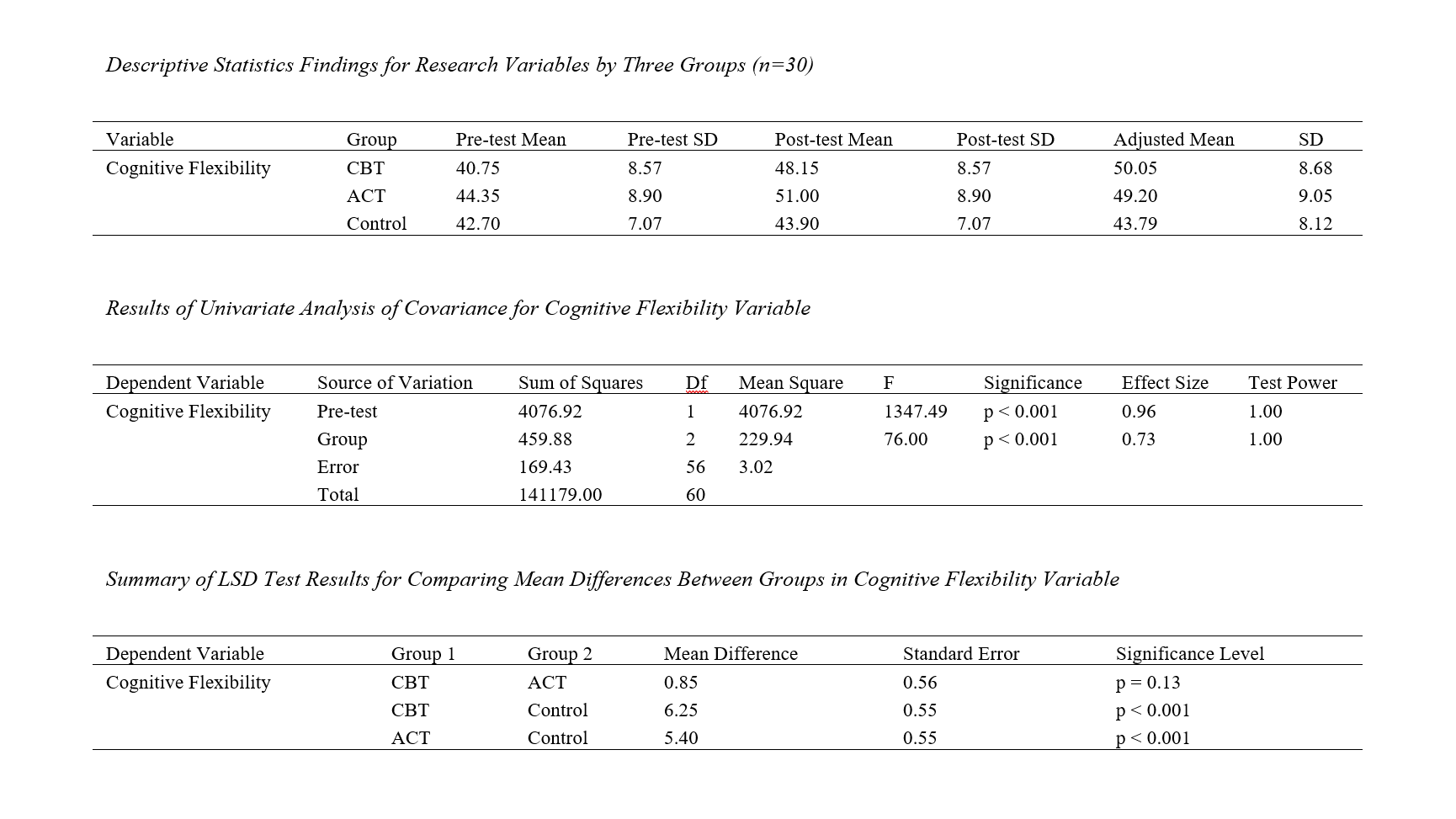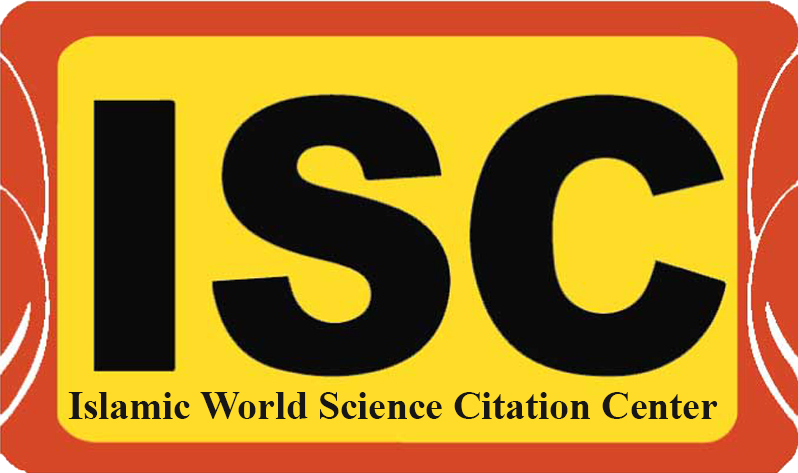Comparing the Effectiveness of Cognitive Behavioral Therapy and Acceptance and Commitment Training on Cognitive Flexibility in Adolescent Girls
Abstract
Objective: Cognitive flexibility enables individuals to adapt their cognitive processing strategies to cope with new and unforeseen situations; thus, the current research aimed to compare the effectiveness of cognitive behavioral therapy (CBT) and acceptance and commitment therapy (ACT) on cognitive flexibility in adolescent girls.
Research Method: This was a quasi-experimental study with pre-test, post-test, and control and experimental groups. The population consisted of all female middle school students in Karaj for the academic year 2022-2023, totaling 2,864 individuals. Through simple random sampling, 60 individuals (20 in the first experimental group, 20 in the second experimental group, and 20 as the control group) were selected as the sample size and responded to the questionnaire by Dennis and Vander Wal (2009). Pre-tests regarding both groups were conducted before the interventions; subsequently, eight one-hour sessions of ACT based on Hayes et al. (2013), and eight one-hour sessions of CBT based on Heimberg and Becker (2002) were implemented on the experimental groups. No specific intervention was conducted for the control group. Immediately after the sessions concluded, a post-test was administered to both groups. Data were analyzed using covariance analysis.
Findings: The results of data analysis indicated that the effects of both cognitive-behavioral therapy and acceptance and commitment therapy on increasing cognitive flexibility in adolescent girls are approximately at the same level, and the difference in the mean of the cognitive flexibility variable between the two treatment groups and the control group was significant.
Conclusion: As a result, both cognitive-behavioral therapy and acceptance and commitment therapy significantly impact increasing cognitive flexibility in adolescents.
Downloads

Downloads
Additional Files
Published
Issue
Section
License
Copyright (c) 2024 Shamim Khalili (Author); Mostafa Hamdieh (Corresponding Author)

This work is licensed under a Creative Commons Attribution-NonCommercial 4.0 International License.






















